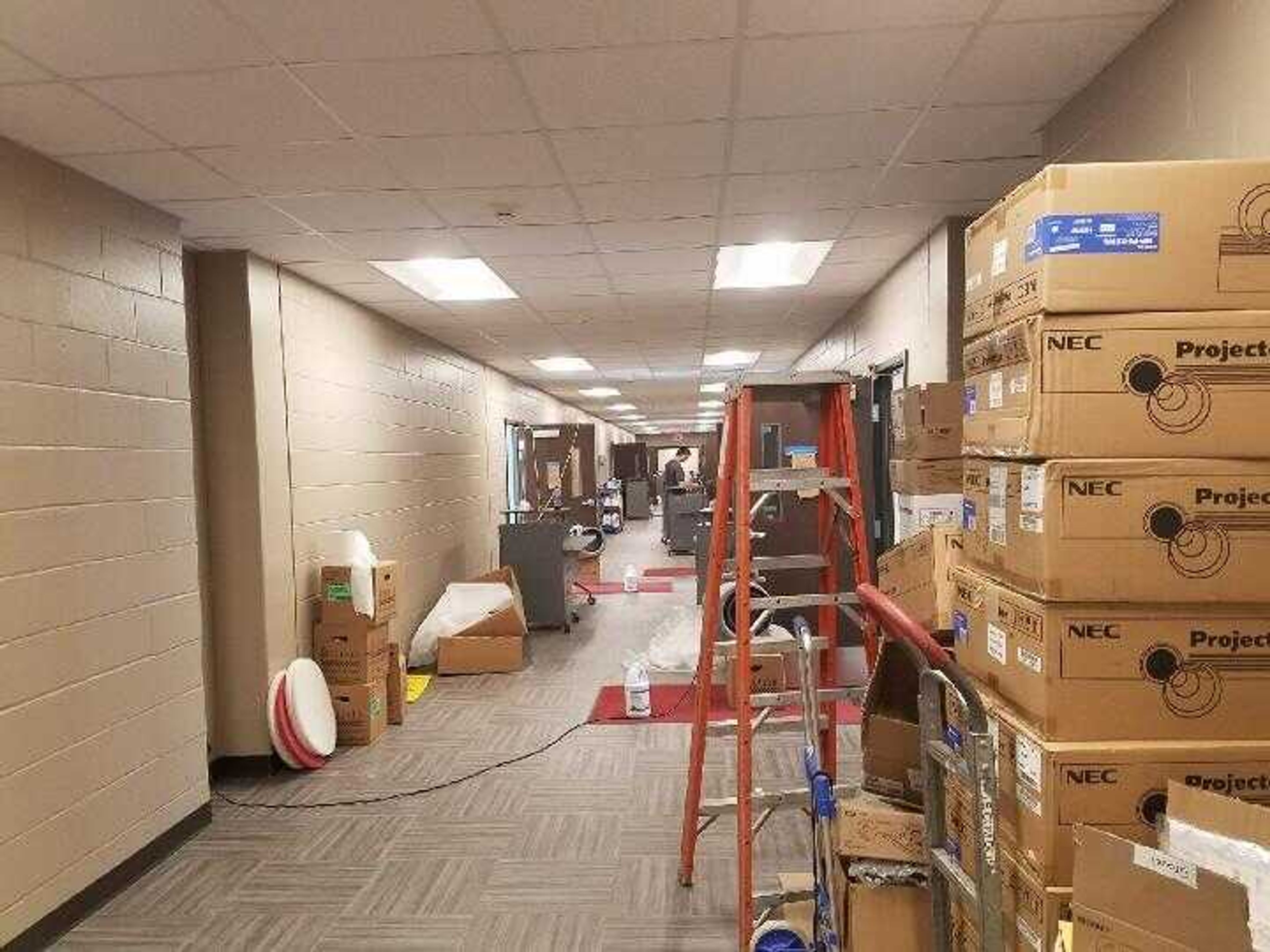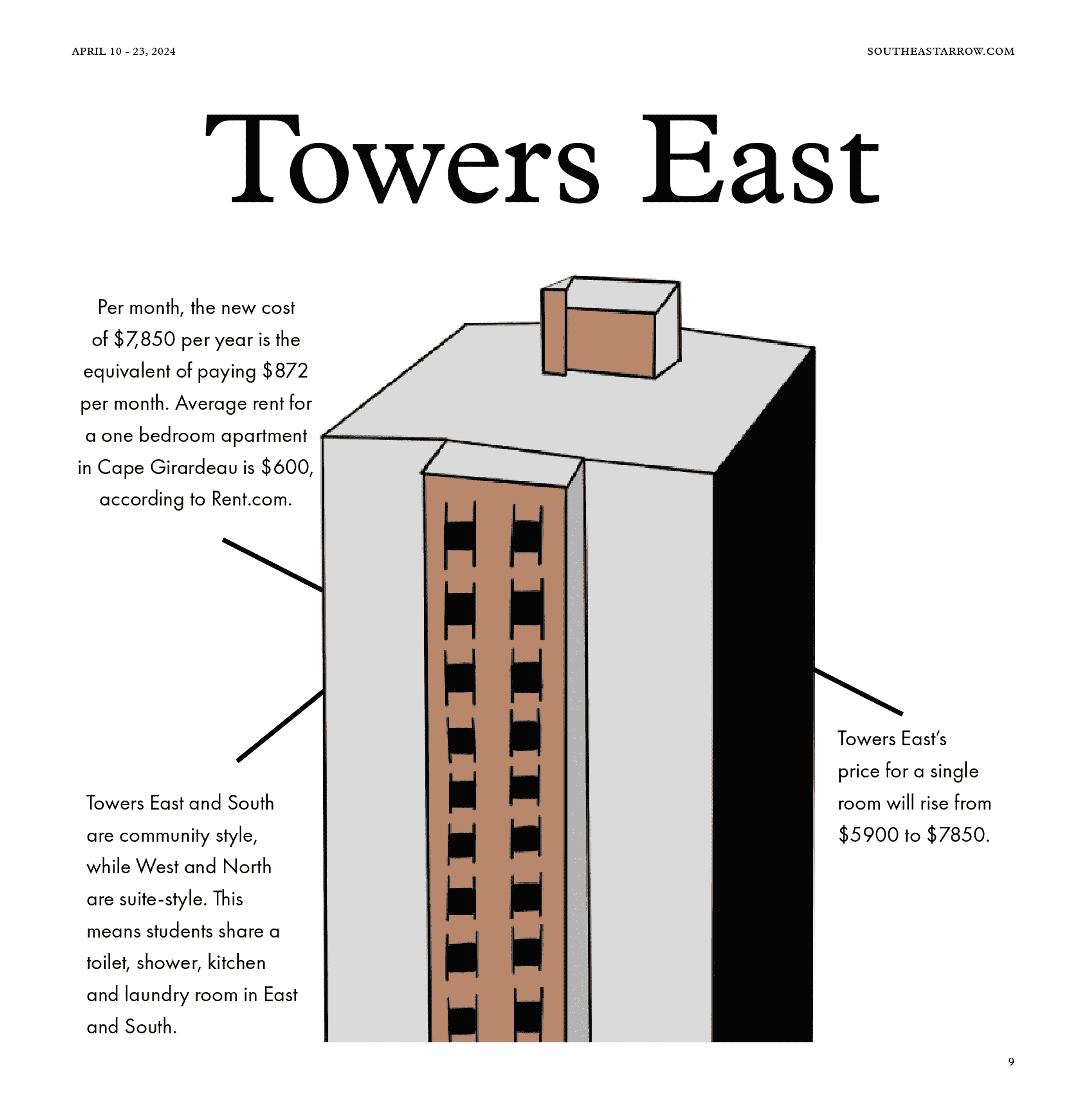The Grauel Building completed its nearly eight-month-long renovation period on time, ensuring the building would be ready to resume use by its housed departments.
Construction started in January and from the closing of the building to the end of its renovation, there were always contractors and subcontractors from multiple outlets moving in and out to get the building finished on schedule.
Grauel is home to the departments of mass media, English and communication disorders.
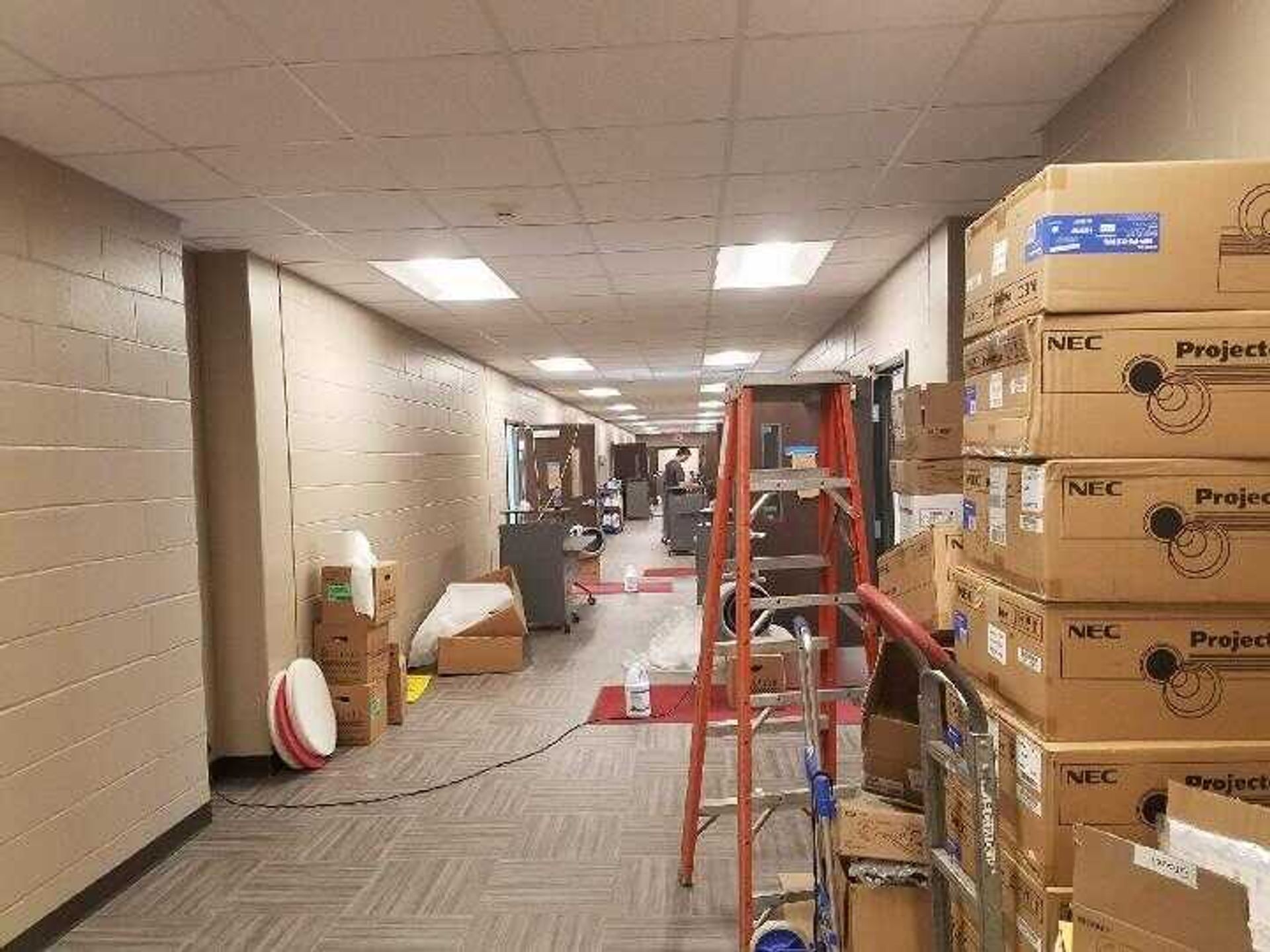
“We started the planning and design process over a year ago with all the departments to find out what their needs were and how they wanted their classrooms and offices set up,” Lisa Howe, senior project manager for Facilities Management, said.
The major reason for the renovation of Grauel was to make more room for its respective departments.
A major way to make room came by moving the lead work stations for the mass media and communication disorders departments out of the building.
Last year, the university opened the Center for Speech and Hearing across from Grauel to allow the Department of Communication Disorders the necessary space to function.
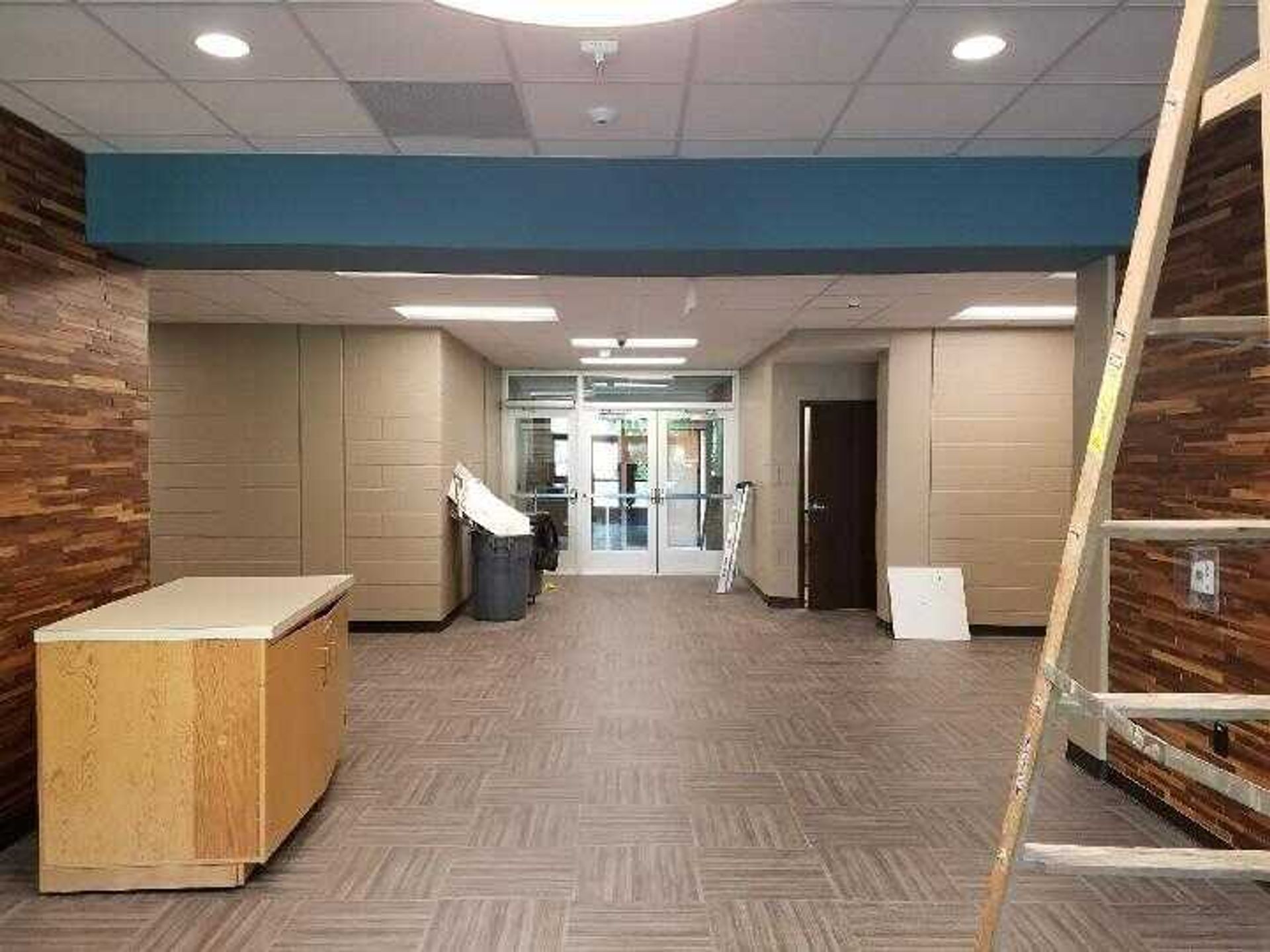
The Department of Mass Media dedicated the Rust Center for Media on Media Row in October 2016 in downtown Cape Girardeau, to move the Arrow office out of Grauel and allow the lower level of the building to expand from three classrooms to six.
The mass media department’s location on level zero, the basement level, also was fitted with the technology needed for their “Pro on the Go” campaign, that required students in the department to have MacBook Pros for 300-level and above courses.
Karie Hollerbach, chairperson and professor of mass media, said the renovations now allow all mass media classrooms and labs to function as multimedia centers for students.
Level zero also will support wireless connectivity in every room and in the hall. This new wireless infrastructure is directly because of the future of the mass media department going into renovation planning.
“When we designed those classroom spaces, we already knew the MacBook Pro
Initiative was moving forward, so we designed it with that in mind,” Hollerbach said.
With the reduction of mass media and communication disorder outlets in the buildings, the English department was allowed to have all its offices located in the building as well as expanding classroom sizes and a restroom on the second level.
To accomplish these needs, the renovations began with asbestos abatement to the building before any renovations could begin.
After that, contractors began to bring in demolition subcontractors to begin the demolition process.
Grauel received an entirely new fire alarm system in the building, new HVAC systems, utilities, cosmetic work and more to bring the older building into a modern state both in and appearance and technology level.
Due to new codes, the workers had to fire caulk the hallway and rooms in the building before the new drop ceiling and light fixtures could be installed.
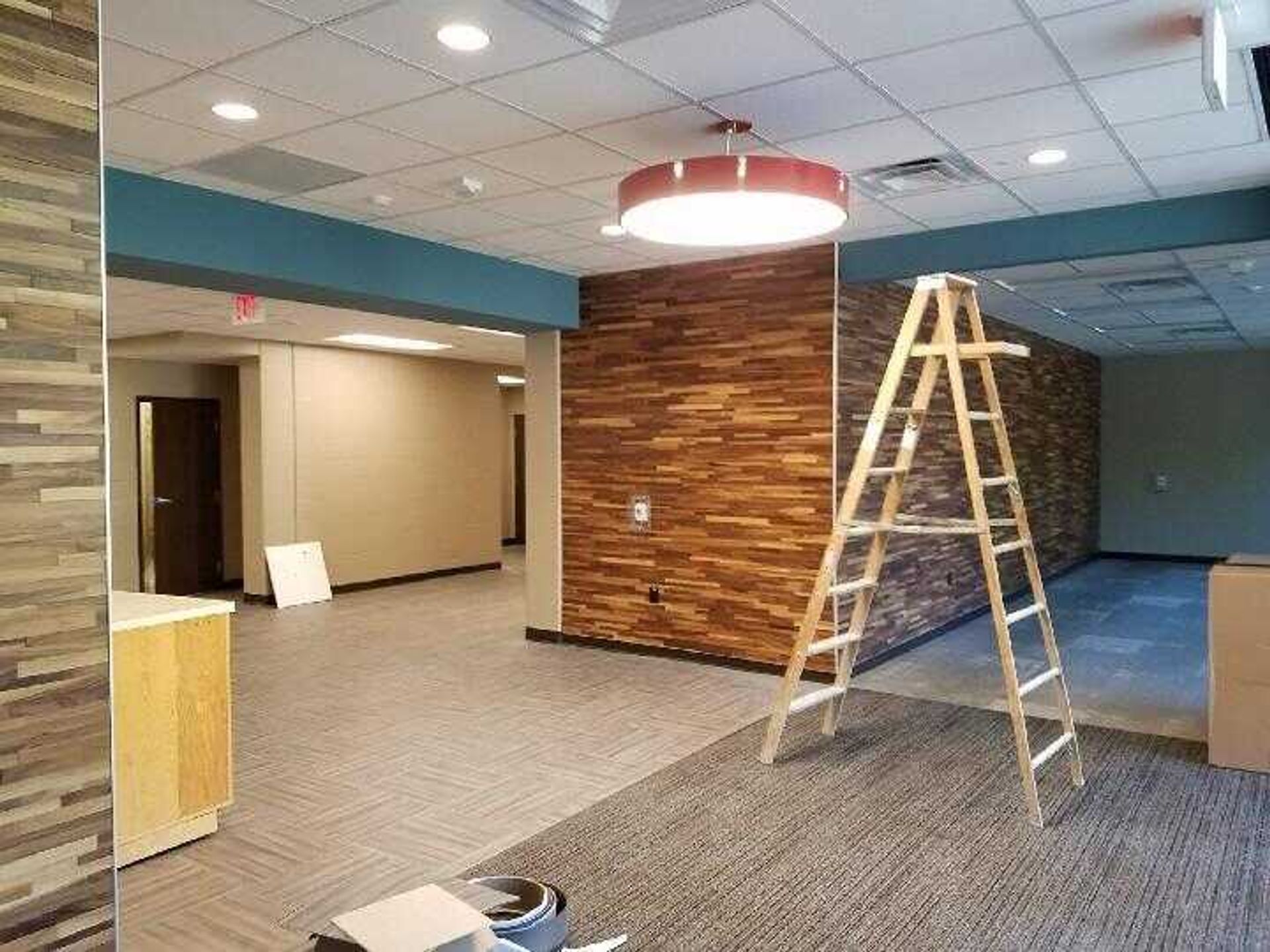
“It seemed like for months and months, there was all this infrastructure work,” Howe said, which meant many of the final steps of the process weren’t started on until this summer.
Howe said the relatively light weather from winter and spring helped somewhat in the delivery of materials and construction.
Despite an active campus for the spring 2017 semester, the team utilized the back parking lot of Grauel as a storage and staging area for their work. The major benefit was Grauel’s location on the edge of campus, which kept the major influx of foot and road traffic out of the picture to allow crews the room needed to complete the building’s renovation for the start of fall 2017 semester.
Despite the renovations to Grauel, Rose Theatre remained opened so TV/Film students were able to remain in their section. At the beginning of the project however, the fire alarm system would inadvertently go off due to new wiring for systems to be connected to both buildings.
There was an effect on air and water systems while those students remained in Rose, though Howe said arrangements were made each time to get replacement systems up and running for that sector to be utilized.
“As with any old building there were a lot of challenges,” Howe said.
One of the surprising challenges the team faced was the use of glue pucks on the building’s old whiteboards and corkboards. When pulled off, the pucks were difficult to remove, so they had to be grinded off. Howe said this was because the new paint would not work with the pucks still attached to the wall.
The amount of dust created an everlasting issue to keep the building clean during construction to not affect equipment and painting.
The majority of the project was rediscovering how the building was initially built and how to work around that. This mostly affected the new windows as they did not foresee the openings left when they went to replace the old, inefficient windows.
Howe said one of the strangest discoveries made at level zero was during plumbing work, when crews found a 5-inch cast-iron drainpipe from 1965, which is an unusual size in terms of modern construction, so the team had to find a fitting to connect it to the new systems.
While all these unforeseen problems did affect budget and time, none ever made it to a level that would seriously hinder the renovation.
“There were alway going to be surprises with an old building,” Howe said.
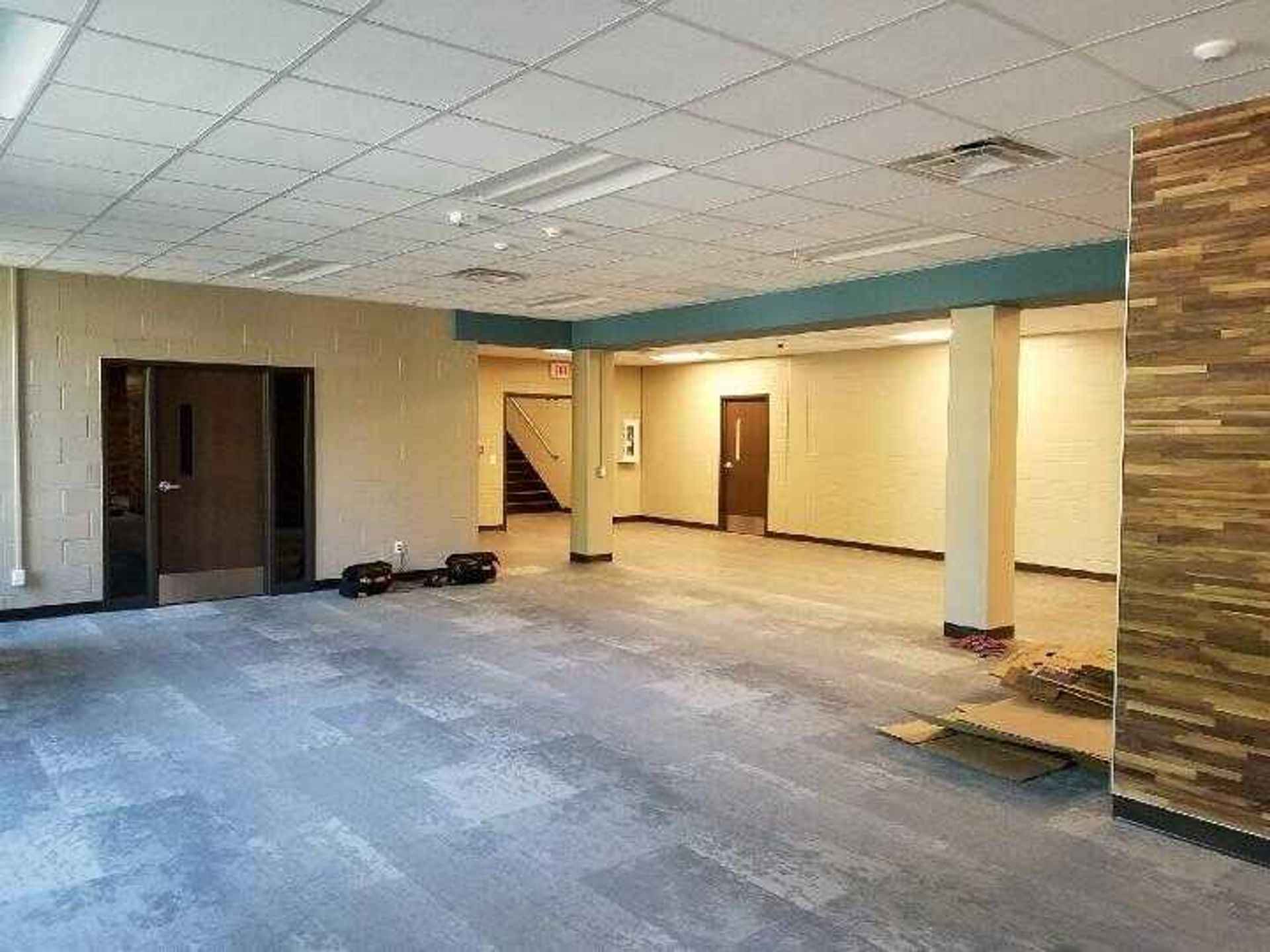
Howe said in the end most of the abnormalities discovered were those that Facilities had prepared for and expected. She said the project went smoothly and that Facilities Management was impressed by the professionalism and work ethic of the contractors brought in, because they had not worked with most of them before.
The major renovations were completed in mid-July to allow the departments to move back into their respective levels. Communication disorders and English moved in first, while mass media moved in a week later with about three weeks to set up for the coming semester.
Howe said the building has a one-year warranty period with the contractors, so that if any problems arise they’ll come down to get it fixed.
